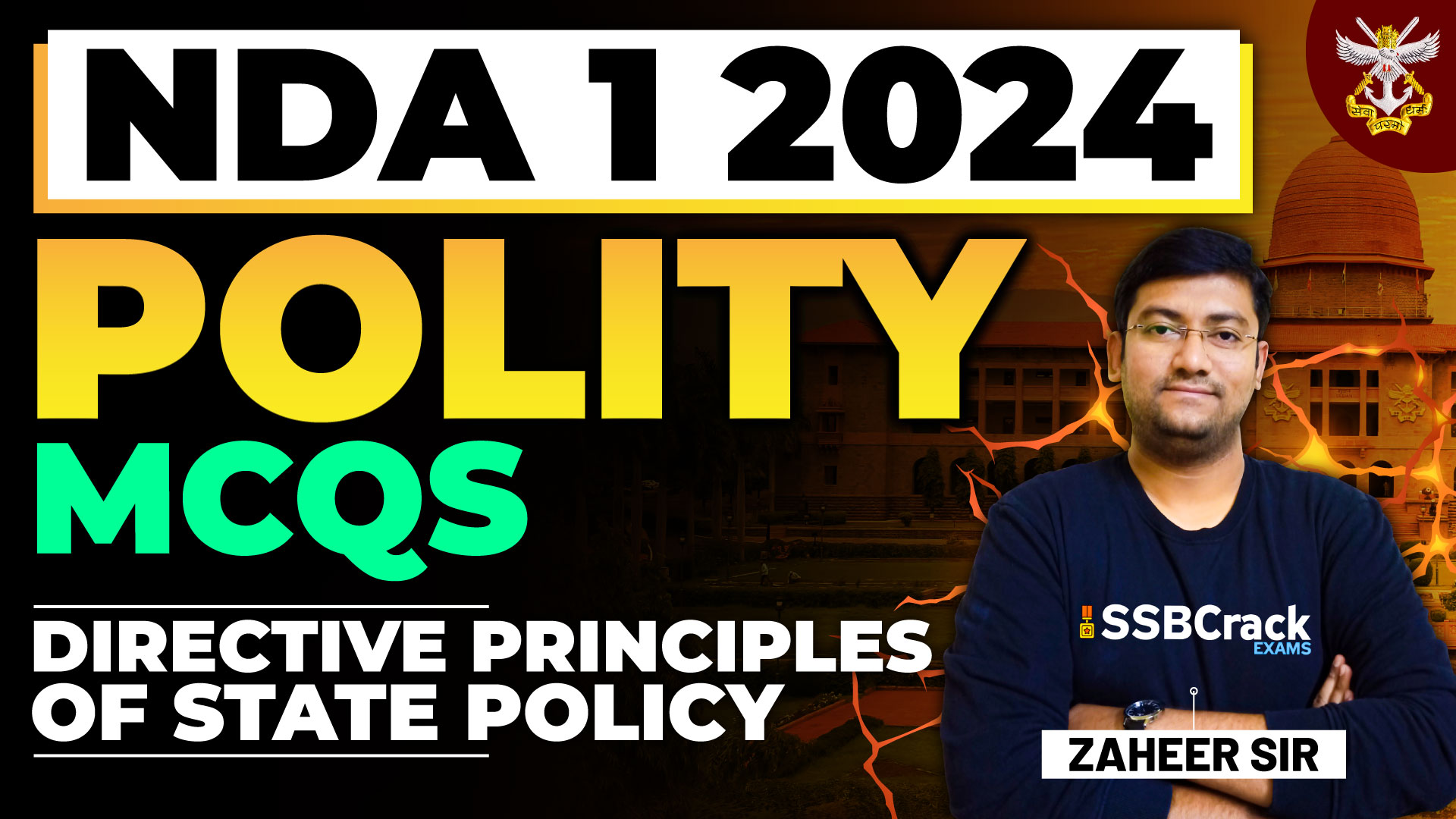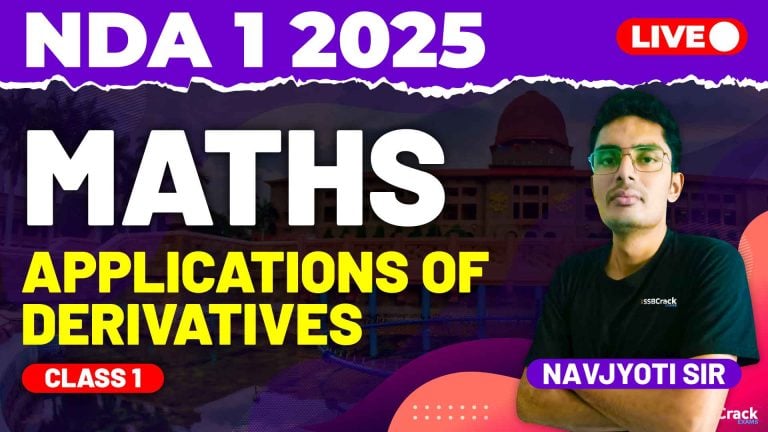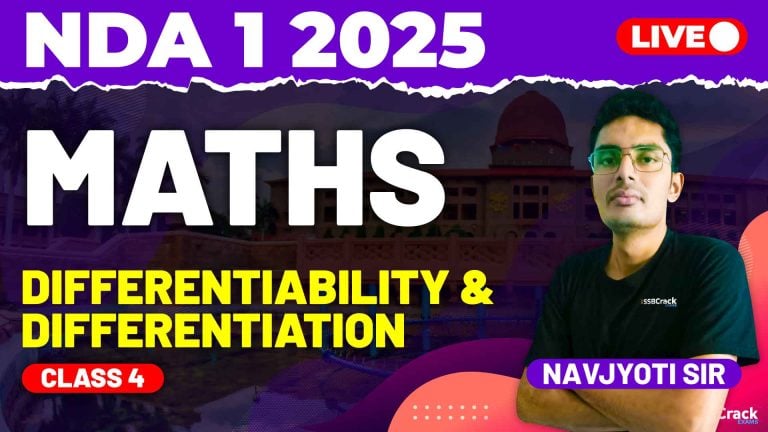As the National Defence Academy (NDA) examination for 2024 approaches, aspirants are immersed in rigorous preparation to secure their places in one of India’s premier defense institutions. Amidst the plethora of subjects and topics covered in the NDA syllabus, understanding the Directive Principles of State Policy (DPSP) in Polity holds paramount importance. In this pursuit, MCQ (Multiple Choice Questions) solving classes emerge as invaluable tools for aspirants aiming to excel in the NDA examination.
Directive Principles of State Policy form the cornerstone of India’s governance framework, enshrined in Part IV of the Constitution. While not enforceable by courts, these principles serve as guidelines for the state to establish a just and equitable society. For NDA aspirants, a comprehensive understanding of DPSP is not only essential for the Polity section but also for grasping the underlying ethos of India’s democratic structure.
MCQ solving classes tailored specifically for DPSP provide candidates with a structured approach towards comprehending the nuances of these principles. Here’s why such classes hold immense importance:
- Focus on Conceptual Clarity: MCQ solving classes delve into the fundamental concepts underlying DPSP. Through systematic sessions, aspirants gain clarity on each directive principle, its objectives, and relevance in contemporary governance. This clarity is pivotal for tackling intricate questions in the NDA examination.
- Strategic Preparation: NDA aspirants often face time constraints during the examination. MCQ solving classes equip them with strategic approaches to solve questions swiftly and accurately. Techniques such as elimination, prioritization of topics, and efficient time management are honed through regular practice sessions.
- Holistic Coverage of Topics: DPSP encompasses a wide array of principles ranging from social justice to economic equality. MCQ solving classes ensure comprehensive coverage of these topics, leaving no stone unturned in the aspirants’ preparation journey. From Fundamental Rights to Directive Principles, every aspect of the Polity syllabus is meticulously addressed.
- Enhanced Retention and Application: The interactive nature of MCQ solving classes fosters active engagement and facilitates better retention of concepts. Aspirants not only memorize facts but also develop the ability to apply them in different contexts. This application-oriented approach is instrumental in tackling the diverse question patterns encountered in the NDA examination.
- Benchmarking and Assessment: MCQ solving classes provide a platform for aspirants to gauge their performance through regular mock tests and assessments. Feedback from instructors enables them to identify strengths and areas needing improvement, thereby refining their preparation strategy.
- Boosting Confidence and Motivation: Success in competitive examinations is often a product of confidence and self-belief. MCQ solving classes instill confidence in aspirants by familiarizing them with the examination pattern and providing ample opportunities to practice. This sense of preparedness acts as a motivational catalyst, driving aspirants towards their goals with renewed vigor.
In conclusion, MCQ solving classes focusing on Directive Principles of State Policy in Polity are indispensable for NDA 1 2024 aspirants. By imparting conceptual clarity, strategic preparation techniques, comprehensive coverage of topics, enhanced retention, benchmarking, and confidence-building, these classes pave the way for aspirants to ace the NDA examination with flying colors. As the countdown to the examination begins, embracing such classes becomes not just a choice but a prerequisite for success on the path to serving the nation with honor and distinction.
DPSP MCQs
Which article of the Indian Constitution provides for the institution of Panchayati Raj?
A.Article 36
B.Article 39
C.Article 40
D.Article 48
Answer: C
Which of the following Directive Principles of State Policy come into the category of “liberal principles”?
1.The state shall endeavor to secure a uniform civil code throughout the territory of India.
2.The state shall protect every monument or place or object of artistic or historic interest.
3.The state shall endeavor to secure to all workers a living wage and conditions of work ensuring a decent standard of life.
4.Work Towards Organization Of Panchayats.
A.1, 2 and 3 C. 2, 3 and 4
B.1, 3 and 4 D. 1, 2, 3 and 4
Answer: A
Which one of the following Directive Principles was inserted by the Constitution (42nd Amendment) Act, 1976?
A.The State shall minimize inequalities in income
B.Equal justice and free legal aid
C.Promotion of co-operative societies
D.Provision for early childhood care
Answer: B
Protection of wildlife comes under which of the following in Constitution of India?
1.Fundamental duties
2.Directive Principles
3.Seventh Schedule
A.Only 1 & 2
B.Only 2 & 3
C.Only 1 & 3
D.1, 2 & 3
Answer: D
The Directive Principles of State Policy (DPSP) Was Inspired By Which Of The Following Constitution?
A.USSR
B.Switzerland
C.Japan
D.Ireland
Answer: D
For More MCQ’s On This Topic Refer To Below Video & Attached Pdf

















